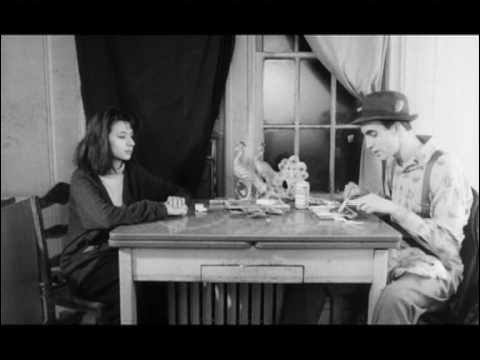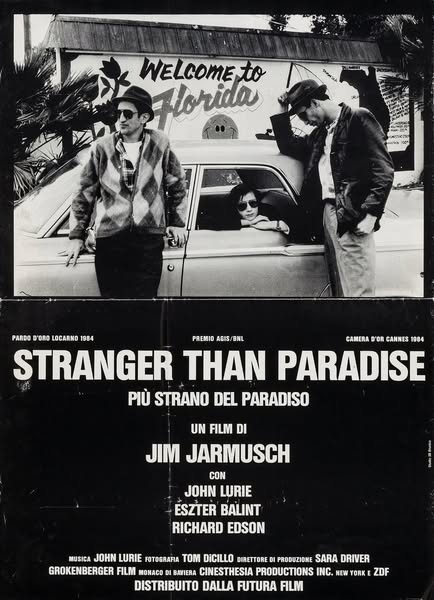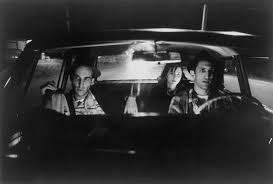Stranger Than Paradise (1984)

“Stranger Than Paradise,” directed by Jim Jarmusch and released in 1984, is an influential independent film that combines deadpan humor and a minimalist narrative style. The film stars John Lurie as Willie, a New Yorker who feels disconnected from life, and Eszter Balint as his Hungarian cousin Eva, who arrives unexpectedly from Europe.

The story unfolds in three acts, showcasing the mundane yet poignant interactions between Willie, his friend Eddie (Richard Edson), and Eva. Initially, Willie is indifferent to Eva’s presence, viewing her as an intruder in his life. However, as the film progresses, their relationship develops against a backdrop of bleak but beautifully shot landscapes and quirky moments.
Jarmusch’s distinctive style is evident in the film’s long takes, sparse dialogue, and contemplative pacing, emphasizing the characters’ existential ennui. The black-and-white cinematography enhances the film’s aesthetic, creating a sense of starkness that mirrors the characters’ emotional states.

“Stranger Than Paradise” received critical acclaim for its innovative approach to storytelling and its exploration of themes such as alienation and the search for connection. The film won the Caméra d’Or at the Cannes Film Festival and is often regarded as a landmark in American independent cinema.

In conclusion, “Stranger Than Paradise” is a unique and thought-provoking film that captures the essence of human disconnection and the subtle beauty of everyday life. Its distinctive style and memorable characters continue to resonate with audiences, solidifying its place as a classic in the indie film movement.











